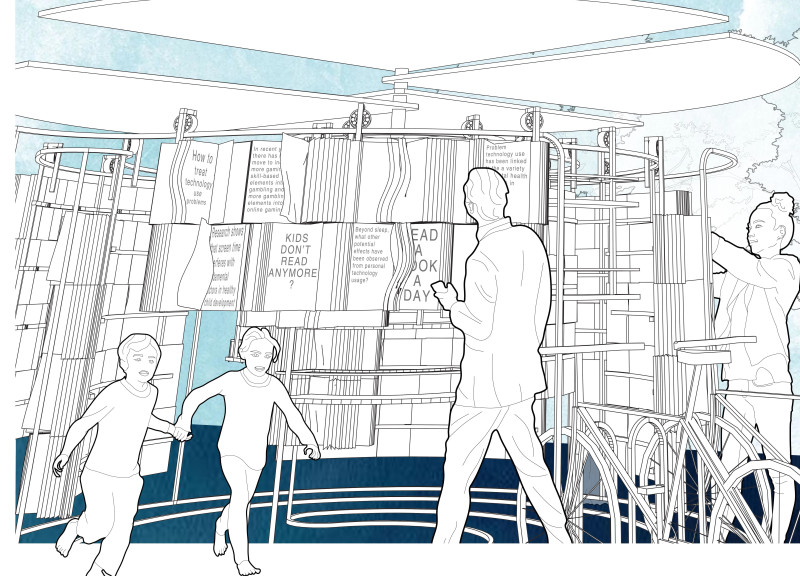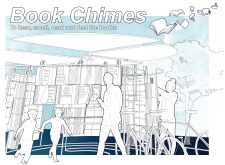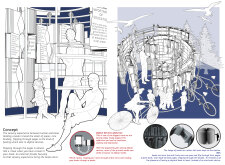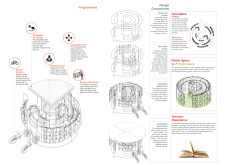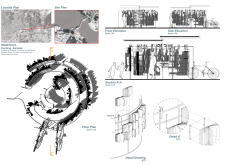5 key facts about this project
Innovative Design Features
A key characteristic of "Book Chimes" is its interactive book panels, which are designed to mimic the pages of open books. This unique aspect allows visitors to physically engage with the panels, flipping them as they would with traditional books. This interaction not only fosters a connection with literature but also enhances the sensory experience of reading. The circular layout of the reading station creates a natural flow, guiding visitors through various interactive spaces that encourage exploration.
The project also emphasizes accessibility, integrating bicycle parking to promote eco-friendly transport options. This thoughtful inclusion aligns with modern sustainable practices, making the reading station approachable for the community. Additionally, designated zones for quiet reading provide an escape from the public areas, allowing for deep engagement with texts in a serene environment.
Sustainability and Materiality
"Book Chimes" prioritizes sustainability through several design choices, including the incorporation of collapsible solar panels. These panels not only provide energy but also enhance the structure's aesthetic by offering shade and shelter. The lightweight steel frame ensures stability while allowing for flexibility in the design. Wood is employed for the book panels, enhancing tactile interaction and providing a connection to natural materials. The overall material palette supports both the architectural goals and the environmental aspirations of the project.
The multifaceted design of "Book Chimes" effectively bridges community, literature, and the natural environment, establishing a significant cultural resource along the Kuching waterfront. The project serves as a model for integrating architectural design with public engagement and sustainable practices.
For further insights into the architectural details of this project, including architectural plans, sections, and designs, readers are encouraged to explore the project presentation for a comprehensive understanding of its unique architectural ideas.


